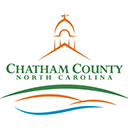Food Safety in the Time of COVID19
go.ncsu.edu/readext?688578
en Español / em Português
El inglés es el idioma de control de esta página. En la medida en que haya algún conflicto entre la traducción al inglés y la traducción, el inglés prevalece.
Al hacer clic en el enlace de traducción se activa un servicio de traducción gratuito para convertir la página al español. Al igual que con cualquier traducción por Internet, la conversión no es sensible al contexto y puede que no traduzca el texto en su significado original. NC State Extension no garantiza la exactitud del texto traducido. Por favor, tenga en cuenta que algunas aplicaciones y/o servicios pueden no funcionar como se espera cuando se traducen.
Português
Inglês é o idioma de controle desta página. Na medida que haja algum conflito entre o texto original em Inglês e a tradução, o Inglês prevalece.
Ao clicar no link de tradução, um serviço gratuito de tradução será ativado para converter a página para o Português. Como em qualquer tradução pela internet, a conversão não é sensivel ao contexto e pode não ocorrer a tradução para o significado orginal. O serviço de Extensão da Carolina do Norte (NC State Extension) não garante a exatidão do texto traduzido. Por favor, observe que algumas funções ou serviços podem não funcionar como esperado após a tradução.
English
English is the controlling language of this page. To the extent there is any conflict between the English text and the translation, English controls.
Clicking on the translation link activates a free translation service to convert the page to Spanish. As with any Internet translation, the conversion is not context-sensitive and may not translate the text to its original meaning. NC State Extension does not guarantee the accuracy of the translated text. Please note that some applications and/or services may not function as expected when translated.
Collapse ▲By Deepa Sanyal
Master Gardener℠ volunteer in Chatham County
Is the novel coronavirus a food safety issue? To date, there is no evidence of coronavirus transmission through food. The CDC and USDA are not aware of any reports at this time of human illnesses that suggest COVID-19 can be transmitted by food or food packaging. However, it is always important to follow good hygiene practices—wash hands and surfaces often, separate raw meat from other foods, refrigerate foods promptly when handling or preparing foods, and cook food to the right temperature.
In fact, piping hot foods are safe as the virus cannot survive hot temperatures. Marion Nestle, the Paulette Goddard Professor, of Nutrition, Food Studies, and Public Health, Emerita, at New York University, wrote in a recent blog Nestle Blog Post that to be 100 percent safe while eating fresh produce follow the “P” rules—rules followed in countries without safe water supplies—and only eat foods that are:
- Piping hot (hot temperatures destroy viruses and other microorganisms)
- Peeled (wash hands before and after)
- Purified (cooked and not re-contaminated)
- Packaged (industrially packed, frozen, or dried)
How safe is grocery shopping and what is my grocery store doing to minimize my risk? Many stores are following CDC guidelines on cleaning and disinfection. Some are limiting hours to allow for additional cleaning and disinfection. As a consumer, you can minimize your risk by using hand sanitizer and cart wipes. Also, go to the store alone if possible, take a shopping list for a quicker shop, wear a mask, and maintain social distance. While shopping, consider using hand sanitizer before and after selecting produce items and avoid touching multiple produce items when making selections. For more on this and other food safety topics—dining out, takeout, cleaning and disinfecting reusable bags, shopping and handling groceries see NC State University Food Safety
How should I handle groceries when I get home? Can I bring them inside right away? There is no indication that food or food packaging material has a significant connection to virus transmission. Handling of food packaging should be followed with hand-washing and/or using hand sanitizer. It is NOT recommended to store groceries outside of the home, in cars or garages. For more on shopping and handling groceries, see NC State University Safe Grocery Shopping.
Farmer’s Markets
Now more than ever is the time to support regional farmers while exercising best practices for the safety of yourself and those around you as they relate to food. In her blog, Chatham County Farmers’ Markets, Debbie Roos, Extension Agent, Agriculture-Sustainable / Organic Production, writes that most area farmers’ markets have remained open because they serve an essential role in our food system. All three Chatham County Farmers’ Markets—the Pittsboro Farmers’ Market, the Fearrington Farmers’ Market, and the Chatham Mills Farmers’ Market have been working extremely hard to overhaul their market strategies to keep vendors and customers safe. You can read about these social distancing and hygiene practices pioneered by the Carrboro Farmers’ Market in an article Debbie Roos wrote a few weeks ago, Carrboro Farmers’ Market Safety Practices.





